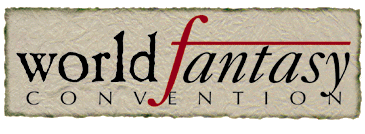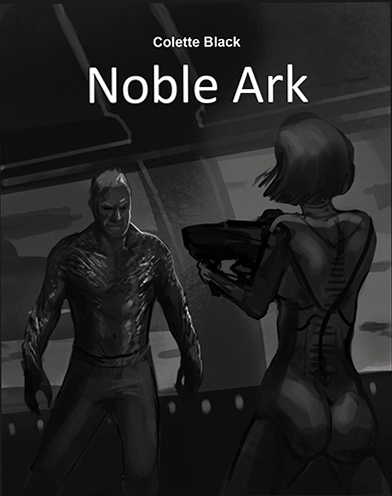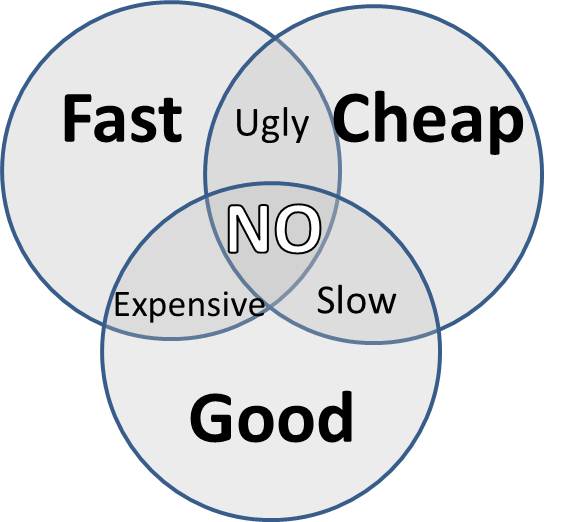A guest post by Nick Ruva.
One piece of advice you will hear repeatedly as you embark on a writing career is, “Don’t quit your day job.” Many of us know that all too well. Either you do not make enough as a writer to pay the bills, or you need the security of a consistent paycheck and those much appreciated health benefits. Whatever your reason may be, trying to squeeze in your writing time while working a full-time job can be difficult. It is harder if you are working a job that challenges you to find creative solutions to problems. I cannot prescribe a way to squeeze more time out of your day to write. I am a staunch believer in the idea that when we say we do not have time to write, what we are really saying is there are other things we would rather spend our time on. I get that, and by all means if you would rather spend time unwinding after a long day by watching the tube or shooting baddies online, I cannot blame you. I have been there a million times. When I was asked to write an article about working a job that consumes you night and day, but still finding time to write, I had to sit down and think about it. Sure, I am busy often, and I work some long hours, but at the end of my day I still have time I could be writing, but sometimes I mentally cannot. I have found that there is a limit to the creative output I can muster in a day. Some nights all I want to do is flop on the couch and nullify my brain watching TV. The trick for me has been finding a balance.
I work as a Configuration Management Engineer, which is a fancy way of saying I manage the automated building and release of software. My job requires me to research and solve complicated problems. We need a product to build faster, or a process improved so it is more stable or does something else. It is a job where you are constantly being presented with a problem and asked to find a fast and elegant solution. It is a lot like creative writing, and it ticks a lot the same creative pleasure centers in the brain. Over the years I have had several jobs that did not challenge me, such as my early years in retail, or doing simplistic quality assurance testing. Now, some QA testers need to be deviously creative, but my stint was ticking boxes on a checklist as either pass or fail. Do this, record result, repeat. I would not say it was mind-numbing, but it did make me desire to be more creative during my downtime. As the skill and creativity necessary for my day job increased, my writing productivity took a hit. Again, it was not for a lack of time. I have the time to write, and I feel guilty if I am not working on a story, but finding the drive when I am already creatively satiated during the day means I need to use other criteria to motivate me. So what do you do if you find yourself in a similar situation?
The first thing I would recommend is to reach out and meet other writers. Writing groups can be incredibly helpful. While at the University of Southern California, I took a few creative writing courses which allowed me to meet other writers on campus and establish critique groups with other newbie writers. After school, I went to a few local bookstores and looked for fliers for writing groups in the area. I am still in a group thanks to a post I found years ago. Likewise, I have met writers online and at classes and workshops, and we have created an online critique group that is still in its infancy, but is already having a huge effect on my writing. A good writing group will help you on so many levels. First, and maybe most important for us busy folks, a writing group will encourage you to write more. I feel extremely guilty if I do not bring something to my critique groups, and shame writing is still writing. If that is what you need to motivate you, I am right there with you.
A critique group also offers a network of writers you can grow and learn from. I have received some amazing critiques over the years, and my writing gets stronger every time I submit. For instance, I had a horrible tendency to write characters who stare. They would stare at everything and everyone, and it drove someone in my critique group up the wall. Looking back over my work, it was a pattern, and a problem, that I have corrected. Likewise, I like my fiction sparse, but that’s a fine line to walk, and if I submit a piece and get too many “white room” comments, I know I have not gotten the balance right. The writers in my critique groups have been instrumental in making me a better writer.
Just meeting and being around other writers can be an enormous help. My writer friends and I like to commiserate and daydream about writing. It helps when you have an all-consuming job, especially if you can talk with other writers in similar situations. If you’re having trouble meeting writers locally, I recommend the more networking heavy seminars, such as the Superstars Writing Seminar. Superstars, and other seminars like it, throw you in an incubator with around fifty other writers. Thanks to social networking sites, we have kept in touch and continue to help promote and nurture each other’s work. Seeing status updates from other writers, yes, even those: “I just wrote 5,000 words this morning,” that shame me into writing, are wonderful motivators. When you are feeling burned out, and all you want to do is click yourself numb on the Internet, having some streaming encouragement definitely helps.
I know what you are thinking. I am telling you the way I find more time to write is by hanging out in writing groups, meeting other writers, and going online to Facebook. OK, so, those are motivators, but what about actually writing. For me, it is trying to find the right mix of time to productivity. I have tried to schedule daily writing times. Early morning before work, during a lunch break, right after work, before bed. When I try to make a set schedule, especially at a set time, I normally start strong and fail miserably in a few days. The biggest issue I have is making the time to write when I am actually feeling inspired. If I am feeling especially creative, and I am excited about a story, I will fly through a couple thousand words. If I am feeling tired, or forced to write, I will resist even opening my manuscript.
I am also leery of setting daily word count goals. I know they work for many of my writer friends, but if I set a goal for a thousand words a day, I will probably slack off thinking, “I can do that in an hour. I’ll just bang out a few paragraphs before bed.” Never happens. If I am crunching, for say NaNoWriMo, I will do hourly goals. For instance, instead of shooting for a thousand words a day, I will force myself to it sit down for two hours and set a goal of five hundred words an hour. Something about moving the goal up and making it smaller, and more immediate, helps me stay accountable. It is not perfect, and sometimes I will balk at that two-hour window, but it helps. For the most part, I am against the writing word count goals as they normally make me less productive, and I sometimes feel defeated if I miss too many in a row.
What has worked for me was creating a little leeway for creative time during the day. I know this may not work for everyone, and maybe you can schedule a solid block of time and work like a champ, but if you are like me, do not feel guilty stopping your daily work here or there for a few minutes to write a paragraph of fiction when you’re inspired. I started doing that a few years ago, and barring a meeting or a catastrophe at work, I can usually find fifteen or twenty-minutes each day to work on some prose. I have also found that it energizes me when I return to my day job, especially if I am stumped on a particularly hard problem, or if I am simply not in the mood to be 100% productive for the nine to five. Completing a few writing goals has worked wonders and I have hammered out a few solid short stories recently on work breaks that have gone over well in my critique groups. Again, your mileage will vary, and make sure that your writing does not jeopardize your day to day. I know how easy it can be to get lost in your writing and lose a few hours of time. You need to find that balance, but I have found writing during my day as a great tool that has made me more productive in my day job and my writing life.
Finally, you need to ask why you are doing this. Over the past year I have been putting my writing life into better perspective. I look at myself as a small business owner, and my writing as a product I need to ready for release. Every time I skip a writing session, or get nothing done for the day, I am pushing my release date out. If I want to get my product on the shelf, I have to put in consistent work. You need to find that big, juicy carrot to dangle in order to keep you motivated even when there is a full DVR to distract you. For me it is simply to write when inspiration hits. I cannot count on having an hour of quality brain-time later. If I can put things on pause for a few, write that scene, and then go on about my day I am that much closer to my finished product.
Nick Ruva is a literary writer who dabbles in Sci-Fi and Fantasy. While he is not practicing the dark arts of fiction, he manages the release and build process of software products and specializes in process control and automation. A Los Angeles transplant, Nick has worked with local LA writers, editors and publishers who are working to promote the independent L.A. writing and arts scene. Nick is a Superstars Writing Seminars alum, David Farland Death Camp survivor, and was a member of the inaugural Writing Excuses “Out of Excuses” Retreat.



